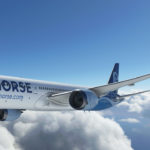The Middle East is home to some of the largest airlines in the world, supported by significant fleets that keep on expanding, and according to Airbus’ latest Global Market Forecast, regional airlines are expected to require 3,020 new passenger and freight aircraft deliveries by 2040, bringing the total fleet to 3,210 from a 2019 fleet baseline of 1,300 aircraft.
Consequently, airline fleet growth will trigger the Middle East aviation services sector to also ramp up significantly over the coming decade. Airbus expects the Middle East aviation services business to witness a 4.7% average annual growth until 2041, surpassing the global average (3.7%).
MRO growth is also driven by enhanced adoption of digital solutions as industries advance towards digitalisation as a whole, in order to create efficiencies and reduce cost. More than 65% of Airbus aircraft flying in the region are connected to Airbus’ digital applications, giving live status of aircraft flying and allowing better planning of maintenance tasks.
Investing in localising MRO services
Regional governments are investing in localising MRO services to locally support this growing industry, thus further enhancing talent capabilities, allowing job creation, education and training in this field. In its Middle East Market Forecast, Global Services Forecast 2022-2041, Airbus expects the region to see an addition of 56,000 new pilots, 51,000 new technicians and 100,000 new cabin crews. Worth $9 billion today, the market is expected to be valued at $25 billion by 2041.
The industry is expected to recover to pre-crisis levels this year with maintenance and training leading the recovery, strongly enabled by digitalisation. New services to enhance fleet efficiency will support the industry’s decarbonisation ambitions, while demand for highly-skilled labour will increase by more than 2 million people over the next 20 years.

